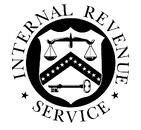On August 29th, 2013, the IRS and Treasury announced (IRS ruling, 2013-17) that all legal same-sex marriages will be recognized for federal tax purposes, even in states that do not recognize same-sex marriages. This means that a same-sex couple who has been legally  married in one of thirteen states (CA, CT, DE as of 7/1/2013, IA, MA, ME, MD, MN as of 8/1/2013, NH, NY, RI as of 8/1/2013) will be treated as being married for Federal tax law relating to employee benefits in any state, even those that do not recognize same-sex marriages.
married in one of thirteen states (CA, CT, DE as of 7/1/2013, IA, MA, ME, MD, MN as of 8/1/2013, NH, NY, RI as of 8/1/2013) will be treated as being married for Federal tax law relating to employee benefits in any state, even those that do not recognize same-sex marriages.
This applies for Section 125 purposes, specifically for a Medical FSA, Dependent Care FSA, or Health Savings Account as well. For example, a same-sex couple who was married in California but lives in Colorado is eligible to cover each other under their employer's Medical FSA/HSA plan even though Colorado does not recognize same-sex marriages.
Some acronyms to know before reading further:
DOMA = Defense of Marriage Act, passed in 1996.
Windsor Ruling = The case the Supreme Court reviewed leading to the ruling that portions of DOMA were unconstitutional.
FSA - Flexible Spending Account
HSA - Health Savings Account
Here are some of the common questions employers and brokers have been asking regarding the Windsor ruling, DOMA, and their Section 125 Plans.
1) Did the Windsor/DOMA decision create a qualifying status change for a same sex domestic partner?
The IRS and Treasury have not explicitly issued guidance that the Windsor ruling created a new qualifying status change event. However, the addition of a spouse is a qualifying status change. It seams reasonable to assume that the recognition of a same-sex domestic partner as a spouse constitutes the addition of a spouse, which would allow an employee to increase their FSA election or make a new FSA election.
2) When should a same-sex spouse be allowed to be added to a plan?
The Windor ruling was issued on June 29th, 2013, so as of that date same-sex couples could make changes to their benefits. Since additional guidance was issued on August 29th it seems reasonable that same-sex couples should be given a window after August 29th in which to make changes to their plans.
3) Can an employee increase or decrease their FSA election based upon the Windsor ruling?
Yes, an employee who now has a same-sex spouse because they have been married in one of the thirteen states listed previously could increase their FSA/HSA election and/or make a new FSA election if they had previously declined to make an election.
4) Is a domestic partnership or civil union recognized as part of the Windsor ruling?
No, legal same-sex marriages in the thirteen states listed above are the only relationships that will now be given the tax treatment of a married couple.
Further guidance from the IRS and treasury should be released in the future further clarifying impacts the Windsor DOMA ruling has to Section 125 plans. If you have any specific questions not answered in this post please leave a comment with your question and we will answer it promptly.

